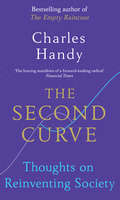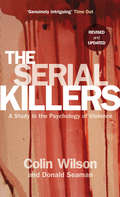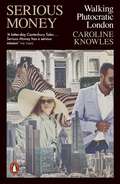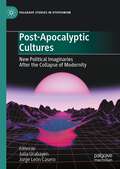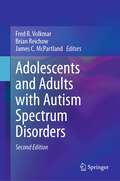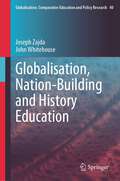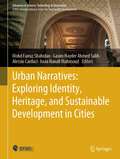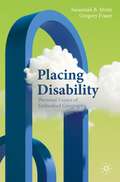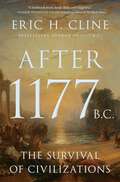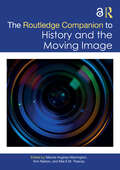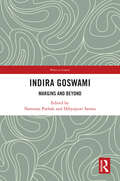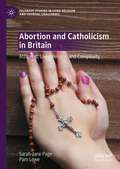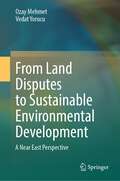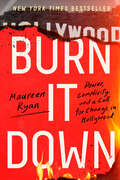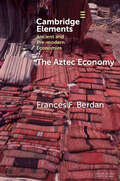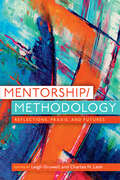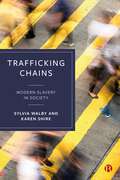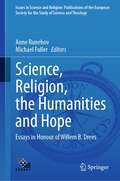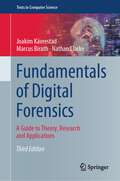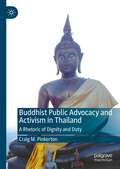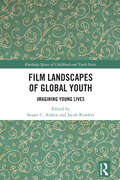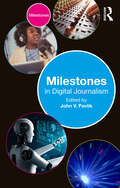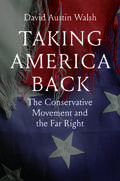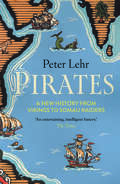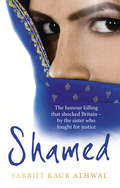- Table View
- List View
The Second Curve: Thoughts on Reinventing Society
by Charles HandyBritain's leading guru looks to the future.Charles Handy is one of the giants of contemporary thought. His books on management – including Understanding Organizations and Gods of Management – have changed the way we view business. His work on broader issues and trends – such as Beyond Certainty – has changed the way we view society. In The Second Curve, Handy builds on a life's work to glimpse into the future and see what challenges and opportunities lie ahead. He looks at current trends in capitalism and asks whether it is a sustainable system. He explores the dangers of a society built on credit. He challenges the myth that remorseless growth is essential. He even asks whether we should rethink our roles in life – as students, parents, workers and voters – and what the aims of an ideal society of the future should be. Provocative and thoughtful as ever, he sets out the questions we all need to ask ourselves – and points us in the direction of some of the answers.
The Serial Killers: A Study in the Psychology of Violence
by Colin Wilson Donald SeamanAs the number of serial killers worldwide has risen steadily - from the emergence of Jack the Ripper in 1888 to Harold Shipman and Ivan Milat, the backpacker killer of the Australian outback - the need to understand mass murder is becoming more urgent. Using privileged access to the world's first National Centre for the Analysis of Violent Crime, Colin Wilson and Donald Seaman bring you this incisive study of the psychology of serial killers and the motives behind their crimes. From childhood traumas to issues of frustration, fear and fantasy, discover what turns an ordinary human being into a compulsive killer.
Serious Money: Walking Plutocratic London
by Caroline Knowles'A latter-day Canterbury Tales ... Serious Money has a serious mission' The Times'Eye-opening ... part guide, part indictment of a yawning wealth gap' Misha Glenny, Financial TimesLondon is a plutocrat's paradise, with more resident billionaires than New York, Hong Kong or Moscow. Far from trickling down, their wealth is burning up the environment and swallowing up the city. But what do we really know about London's super rich, and the lives they lead?To find out more about this secretive elite, sociologist Caroline Knowles walks the streets of London from the City to suburban Surrey. Her walks reveal how the wealthy shape the capital in their image, creating a new world of gated communities and luxury developments. Along the way we meet a wide and wickedly entertaining cast of millionaires, billionaires and those who serve them: bankers, tech tycoons, Conservative party donors, butlers, bodyguards, divorce lawyers and many more.By turns jaw-dropping, enraging and enlightening, Serious Money explodes the fiction that wealth is a condition to aspire to, revealing the isolation and paranoia which accompany it when the plutocrat's recompense - a life of unlimited luxury - ultimately proves hollow. It is a powerful reminder that it is not just the super-rich who get to make the city: we make it too, and could demand something different. Because serious money is good for no one - not even the rich.'An eye-opening, deeply disturbing, fast-moving journey through the lives, homes and affairs of the filthy rich of London' Danny Dorling, author of All That Is Solid'A wonderful and vital account of a city ruled by, and for, extreme wealth' Anna Minton, author of Big Capital
Post-Apocalyptic Cultures: New Political Imaginaries After the Collapse of Modernity (Palgrave Studies in Utopianism)
by Julia Urabayen Jorge León CaseroThis book advocates for the necessity of recovering the value of utopias as political projects that open new channels of action. The criticism of modern political utopias is based on the supposed impossibility of creating for the future because there is no longer a future (apocalyptic ideology). However, this edited collection seeks to show that the post-apocalyptic world in which we live entails a renewed freedom of design for the radical reorganization of institutions. Post-apocalyptic cultures are not obligated to follow the capitalist, anthropocentric, correlationist and sovereign modes of the old political project of emancipation—the Western enlightenment—that has started to collapse. With this in mind, this book is divided into four sections dedicated to the main themes from which to rethink the projects of political emancipation that are possible nowadays: technopolitics; posthumanist biopolitics; non-western politicsl and the crossover between arts and politics.
Adolescents and Adults with Autism Spectrum Disorders
by Fred R. Volkmar Brian Reichow James C. McPartlandThe second edition of this book examines the numerous research and practice advances with regard to adolescents and adults with autism spectrum disorders (ASD). Expert contributors offer cogent reviews of complex issues, from education to employment, leisure activities to illegal behaviors, mental health issues to medical health concerns. The volume explores the latest findings in key areas, such as psychosocial and residential treatments, social skills programs, epidemiology, the impact of ASD on families. The book focuses on areas of research and practice that require improved models of assessment, current data, new interventions, and increased support services. Key areas of coverage include: Transition from high school to adulthood for adolescents and young adults with ASD. Innovative programming to support college students with ASD. Romantic relationships, sexuality and ASD. Treatment of mental health comorbidities. Assessment and treatment planning in adults with ASD. The range of outcomes and challenges in middle and later life for individuals with autism. The second edition of Adolescents and Adults with Autism Spectrum Disorders is a must-have reference for researchers, professors, and graduate students as well as clinicians, therapists, and other practitioners in clinical child, school, and developmental psychology, psychiatry, social work, rehabilitation medicine/therapy, special education, and general practice/family medicine.
Globalisation, Nation-Building and History Education (Globalisation, Comparative Education and Policy Research #40)
by Joseph Zajda John WhitehouseThis book uses historiography and discourse analysis to provide a new insight into understanding the nexus between ideologies, the state, and nation-building—as depicted in history school textbooks. It focuses on the interpretation of social and political change, significant events, and examining possible new biases and omissions in school textbooks. The ‘Europeanization’ of history textbooks in the EU is an example of western-dominated Grand Narrative of pluralist democracy, multiculturalism, and human rights, according to the canon of a particularly European dimension. Various public debates in the USA, China, the Russian Federation (RF), Japan, and elsewhere, dealing with understandings of a nation-building, national identity, and history education point out to parallels between the political significance of school history and the history education debates globally.The book demonstrates that the issue of national identity and balanced representations of the past continue to dominate the debate surrounding the goals, dominant ideologies and content of history textbooks, and historical narratives. It concludes that competing discourses and ideologies will continue to define and shape the nature and significance of historical knowledge, ideologies and the direction of values education in history textbooks. This book provides an easily accessible, practical, yet scholarly insights into local and global trends in the field of history education, and should be required reading for a broad spectrum of users, including policy-makers, academics, graduate students, education policy researchers, administrators, and practitioners.
Urban Narratives: Exploring Identity, Heritage, and Sustainable Development in Cities (Advances in Science, Technology & Innovation)
by Gasim Hayder Ahmed Salih Mohd Fairuz Shahidan Alessio Cardaci Israa Hanafi MahmoudThis book engages readers in an enlightening exploration of cities' identities, sustainability, and urban development. Delving into the intricate interplay between art, architecture, and the urban landscape, it offers a compelling analysis of the factors that shape cities and their distinct personalities. The volume uncovers captivating stories of cities as they navigate the delicate balance between heritage conservation and modernity. It highlights innovative strategies employed to preserve historical sites while adapting to the demands of a rapidly changing world. Full of insightful discussions on the impact of cultural lifestyles, the fusion of architectural styles, and the challenges and triumphs of sustainable urban development, it draws upon a diverse range of perspectives and research, inviting architects, urban planners, and scholars to delve into the intricate nuances of cities' identities in the process.With its informative and engaging narrative, this book providesa fresh perspective on cities' identities and offers practical insights into shaping vibrant, livable urban landscapes.
Placing Disability: Personal Essays of Embodied Geography (Literary Disability Studies)
by Susannah B. Mintz Gregory FraserPlacing Disability presents an international collection of personal essays that address the experience of disability in particular geographical locations. Each chapter engages the question of what it means to be disabled in a specific place, exploring issues of movement, work and play, community and activism, artistic production, love and marriage, access and social services, family and friendship, memory and aging—all informed by the places that people inhabit. The book is organized in terms of topographies and vistas, rather than being bound by the map, to emphasize the defining, constitutive effects of place. The authors included in Placing Disability hail from different countries, neighborhoods, climates, and landscapes; from various backgrounds and professions; from a range of disciplinary perspectives and strategies. They are trained as academics, literary critics, poets, students, public speakers, memoirists, educators, philosophers, administrators, and activists. Their essays refine our understanding of the complex dynamic between self and circumstance as they survey the impact of geographical region on their life experiences. This book is intended to be useful in creative-writing workshops, Disability Studies seminars, and classes on environmental literature, and to appeal to general readers of memoir as well as to scholars of contemporary body theory or the Anthropocene.
After 1177 B.C.: The Survival of Civilizations (Turning Points in Ancient History #12)
by Eric H. ClineIn this gripping sequel to his bestselling 1177 B.C., Eric Cline tells the story of what happened after the Bronze Age collapsed—why some civilizations endured, why some gave way to new ones, and why some disappeared forever&“A landmark book: lucid, deep, and insightful. . . . You cannot understand human civilization and self-organization without studying what happened on, before, and after 1177 B.C.&”—Nassim Nicholas Taleb, bestselling author of The Black SwanAt the end of the acclaimed history 1177 B.C., many of the Late Bronze Age civilizations of the Aegean and Eastern Mediterranean lay in ruins, undone by invasion, revolt, natural disasters, famine, and the demise of international trade. An interconnected world that had boasted major empires and societies, relative peace, robust commerce, and monumental architecture was lost and the so-called First Dark Age had begun. Now, in After 1177 B.C., Eric Cline tells the compelling story of what happened next, over four centuries, across the Aegean and Eastern Mediterranean world. It is a story of resilience, transformation, and success, as well as failures, in an age of chaos and reconfiguration.After 1177 B.C. tells how the collapse of powerful Late Bronze Age civilizations created new circumstances to which people and societies had to adapt. Those that failed to adjust disappeared from the world stage, while others transformed themselves, resulting in a new world order that included Phoenicians, Philistines, Israelites, Neo-Hittites, Neo-Assyrians, and Neo-Babylonians. Taking the story up to the resurgence of Greece marked by the first Olympic Games in 776 B.C., the book also describes how world-changing innovations such as the use of iron and the alphabet emerged amid the chaos.Filled with lessons for today's world about why some societies survive massive shocks while others do not, After 1177 B.C. reveals why this period, far from being the First Dark Age, was a new age with new inventions and new opportunities.
The Routledge Companion to History and the Moving Image (Routledge Companions)
by Marnie Hughes-Warrington Kim Nelson Treacey, Mia E.M.The Routledge Companion to History and the Moving Image takes an interdisciplinary approach to understanding history in moving images. It engages this popular and dynamic field that has evolved rapidly from film and television to digital streaming into the age of user-created content.The volume addresses moving image history through a theoretical lens; modes and genres; representation, race, and identity; and evolving forms and formats. It brings together a range of scholars from across the globe who specialize in film and media studies, cultural studies, history, philosophy of history, and education. Together, the chapters provide a necessary contemporary analysis that covers new developments and questions that arise from the shift to digital screen culture. The book examines technological and ethical concerns stemming from today’s media landscape, but it also considers the artificial construction of the boundaries between professional expertise and amateur production. Each contributor’s unique approach highlights the necessity of engaging with moving images for the academic discipline of history.The collection, written for a global audience, offers accessible discussions of historiography and a compelling resource for advanced undergraduates and postgraduates in history, film and media studies, and communications.Both Chapter 17 and the Afterword of this book are freely available as downloadable Open Access PDFs at http://www.taylorfrancis.com under a Creative Commons [Attribution-Non Commercial-No Derivatives (CC-BY-NC-ND)] 4.0 license.
Indira Goswami: Margins and Beyond (Writer in Context)
by Namrata Pathak and Dibyajyoti SarmaThis book engages with the life and works of Indira Goswami, the first Assamese woman writer to win the highest national literary award, the Jnanpith Award, in 2001. From sociological treatises to a springboard of a socio-political milieu, Goswami’s texts are intersections of the local and the global, the popular and the canonical. The writer’s penchant for transcending boundaries gives a new contour and shape to the social and cultural domains in her texts. That every character is a representative of the society, that the context comes alive in every evocation of class struggle, power play, caste discrimination and gendered narratives add an interesting semantic load to her texts. While tracing the trajectories discussed above, this book foregrounds Goswami’s act of going beyond the margins of varied kinds, both abstract and concrete, in search of egalitarian and democratic spaces of life.The book looks at Indira Goswami’s works with a special emphasis on the author situated within the Assamese literary canon. It not only discusses the themes and issues within her writing, but also focuses on the distinct language and style she uses. The volume includes non-fictional prose, excerpts from her short stories and novels, viewpoints of critics, letters and entries from diaries, as well as interviews with Goswami about her writing and personal life. It engages with her works in the context of her multifaceted, almost mythical life, especially her avowed ‘activism’ against animal sacrifice and militancy in her latter career.Part of the Writer in Context series, this book will be useful for scholars and researchers of Indian literature, Assamese literature, English literature, postcolonial studies, cultural studies, global south studies, gender studies and translation studies.
Abortion and Catholicism in Britain: Attitudes, Lived Religion and Complexity (Palgrave Studies in Lived Religion and Societal Challenges)
by Pam Lowe Sarah-Jane PageThis book details how British Catholic communities view abortion, highlighting the diversity of positions which often contrast with the official line of Catholic Church doctrine. The authors’ extensive qualitative investigation involving various Catholic constituents demonstrates the complex ways attitudes are formed. Based on interviews with priests, Catholic parishioners, anti-abortion activists and Catholics living in close proximity to activism, this book takes a lived religion approach to argue that attitudes and approaches to abortion are nuanced and contextual, with the Catholic concept of individual conscience playing a fundamental role in navigating abortion issues. Ultimately, this investigation helps to explore in much greater depth the increased liberalisation in attitudes among Catholics towards abortion, at a time when Catholic activism opposing abortion is growing, and therefore shines a light on the conflicts that are apparent at the heart of Catholic parishes. Thisbook will be of interest to scholars in Gender and Sexuality Studies, Sociology, Theology and Religious Studies.
From Land Disputes to Sustainable Environmental Development: A Near East Perspective
by Ozay Mehmet Vedat YorucuThis book is written to transform land disputes toward win-win outcomes utilizing the latest sustainable development theory. Land has always been a source of conflict, a contest of competing homelands and ideologies, but it can also act as an agency of peace-making, promoting economic and social development. This dualism will be the theme of this book as there is a dearth of studies exclusively focused on land. The book's coverage is comprehensive, examining land and property disputes with case studies in modern times along with a problem-solving approach utilizing such economic theorems as Location and Growth Poles theories. The UN’s Sustainable Development Goals will be used as our over-arching framework. The overall aim of the book is to transform land disputes toward win-win outcomes utilizing latest sustainable development theory.
Burn It Down: Power, Complicity, and a Call for Change in Hollywood
by Maureen RyanNEW YORK TIMES BESTSELLER • LOS ANGELES TIMES BESTSELLERAn NPR Best Book of the YearIn this spectacular, newsmaking exposé that has the entertainment industry abuzz and on its heels, Vanity Fair's Maureen Ryan blows the lid off patterns of harassment and bias in Hollywood, the grassroots reforms under way, and the labor and activist revolutions that recent scandals have ignited.It is never just One Bad Man.Abuse and exploitation of workers is baked into the very foundations of the entertainment industry. To break the cycle and make change that sticks, it’s important to stop looking at headline-making stories as individual events. Instead, one must look closely at the bigger picture, to see how abusers are created, fed, rewarded, allowed to persist, and, with the right tools, how they can be excised.In Burn It Down, veteran reporter Maureen Ryan does just that. She draws on decades of experience to connect the dots and illuminate the deeper forces sustaining Hollywood’s corrosive culture. Fresh reporting sheds light on problematic situations at companies like Lucasfilm and shows like Lost, Saturday Night Live, The Goldbergs, Sleepy Hollow, Curb Your Enthusiasm and more.Interviews with actors and famous creatives like Evan Rachel Wood, Harold Perrineau, Damon Lindelof, and Orlando Jones abound. Ryan dismantles, one by one, the myths that the entertainment industry promotes about itself, which have allowed abusers to thrive and the industry to avoid accountability—myths about Hollywood as a meritocracy, what it takes to be creative, the value of human dignity, and more.Weaving together insights from industry insiders, historical context, and pop-culture analysis, Burn It Down paints a groundbreaking and urgently necessary portrait of what’s gone wrong in the entertainment world—and how we can fix it.
The Aztec Economy (Elements in Ancient and Pre-modern Economies)
by Frances F. BerdanThe Aztec Economy provides a synthesis and updated examination of the Aztec economy (1325–1521 AD). It is organized around seven components that recur with other Elements in this series: historic and geographic background, domestic economy, institutional economy, specialization, forms of distribution and commercialization, economic development, and future directions. The Aztec world was complex, hierarchical, and multifaceted, and was in a constant state of demographic growth, recoveries from natural disasters, political alignments and realignments, and aggressive military engagements. The economy was likewise complex and dynamic, and characterized by intensive agriculture, exploitation of non-agricultural resources, utilitarian and luxury manufacturing, wide-scale specialization, merchants, markets, commodity monies, and tribute systems.
Mentorship/Methodology: Reflections, Praxis, and Futures
by Leigh Gruwell Charles N. LeshMentorship/Methodology brings together emerging and established scholars to consider the relationship between mentoring practices and research methodologies in writing studies and related fields. Each essay in this edited collection produces a new intellectual space from which to theorize the dynamics of combining mentoring and research in institutions and communities of higher education. The contributors consider how methodology informs mentorship, how mentorship activates methodology, and how to locate the future of the field in these moments of intersection. Mentorship, through the research and relationships it nourishes, creates the future of writing studies—or, conversely, reproduces the past. At the juncture where this happens, the contributors inquire, Where have current arrangements of mentorship/methodology taken writing studies? Where do these points of intersection exist in performance and practice, in theory, in research? What images of the field do they produce? How can scholars better articulate and write about these moments or spaces in which mentorship and methodology collide in productive disciplinary work? By making the “slash” more visible, Mentorship/Methodology provides significant opportunities to support and cultivate diverse ways of knowing and being in rhetoric and composition, both locally and globally. The volume will appeal to students and scholars of rhetoric, composition, and technical and professional communication, as well as readers interested in conversations about mentorship and methodology.
Trafficking Chains: Modern Slavery in Society
by Sylvia Walby Karen ShireAvailable open access digitally under CC-BY-NC-ND license. This book offers a theory of trafficking and modern slavery with implications for policy. Despite economic development, modern slavery persists all around the world. The issue is not only one of crime but the regulation of the economy, better welfare, and social protections. Going beyond polarized debates on the sex trade, an original empirical analysis shows the importance of profit-taking. Although individual experience matters, the root causes lie in intersecting regimes of inequality of gender regimes, capitalism, and the legacies of colonialism. This book shows the importance of coercion and the societal complexities that perpetuate modern slavery.
Science, Religion, the Humanities and Hope: Essays in Honour of Willem B. Drees (Issues in Science and Religion: Publications of the European Society for the Study of Science and Theology #8)
by Michael Fuller Anne RunehovThis book collects a multidisciplinary range of contributions focusing on the prolific and seminal work of Willem Drees in the fields of philosophy of religion, philosophy of the humanities, and science and theology/religion. Trained in both theoretical physics and theology/philosophy of religion, Drees holds doctoral degrees in both theology and in philosophy and, amongst other distinguished positions, held professorships at the University of Leiden and at the University of Tilburg. Drees was also Editor-in-Chief of Zygon, Journal of Religion & Science, between 2008 and 2018, and served as President of the European Society for the Study of Science and Theology (ESSSAT) between 2002 and 2008. In 2018, he was elected as member of the Royal Holland Society of Sciences and Humanities (KHMW). This contributed volume builds on Drees’ expansive and provocative scholarly contributions, notably around the concept and meaning of naturalism and the humanities to the fields of science and religion, as exemplified by his works Religion, Science and Naturalism (1996) and What Are the Humanities For? (2021). In a time where more and more young people across the globe are entering higher education such cross-disciplinary explorations and (re-)evaluations are vital to the field. Accordingly, by approaching his work from a variety of disciplines this collection illuminates the broad reach of Drees’ work and provides scholars from various fields with many new and rich opportunities avenues for research.
Fundamentals of Digital Forensics: A Guide to Theory, Research and Applications (Texts in Computer Science)
by Nathan Clarke Joakim Kävrestad Marcus BirathThis textbook describes the theory and methodology of digital forensic examinations, presenting examples developed in collaboration with police authorities to ensure relevance to real-world practice. The coverage includes discussions on forensic artifacts and constraints, as well as forensic tools used for law enforcement and in the corporate sector. Emphasis is placed on reinforcing sound forensic thinking, and gaining experience in common tasks through hands-on exercises.This enhanced third edition describes practical digital forensics with open-source tools and includes an outline of current challenges and research directions.Topics and features:Outlines what computer forensics is, and what it can do, as well as what its limitations areDiscusses both the theoretical foundations and the fundamentals of forensic methodologyReviews broad principles that are applicable worldwideExplains how to find and interpret several important artifactsDescribes free and open-source software toolsFeatures content on corporate forensics, ethics, SQLite databases, triage, and memory analysisIncludes new supporting video lectures on YouTubeThis easy-to-follow primer is an essential resource for students of computer forensics, and will also serve as a valuable reference for practitioners seeking instruction on performing forensic examinations.
Buddhist Public Advocacy and Activism in Thailand: A Rhetoric of Dignity and Duty
by Craig M. PinkertonThis book studies Buddhist public advocacy and activism in Thailand—a movement often broadly called socially engaged Buddhism—from the perspective of rhetorical studies, specifically, on humanizing and dehumanizing communication practices. In modern Thailand and historical Siam, Buddhism has been integral to the social change processes shaping civil society and an emerging democracy. This study examined two problems: How do contemporary Buddhists in Thailand use rhetorical practice to influence the way the issues they work on are understood, and how do these Buddhists justify their advocacy and activism in rhetorical practice? To the first, a rhetoric of dignity, or humanization, was the central answer. To the second, a rhetoric of duty was the central answer. For researchers in Southeast Asian Studies, Thai Studies, and Buddhist Studies, this book offers a fresh perspective on socially engaged Buddhism through the lens of the communication discipline. For researchers in Psychologyand Communication, it sheds light on the understudied practices of humanizing communication. The bulk of the current research is focused on its opposite—dehumanization—and most of this literature is in the field of psychology even though humanization and dehumanization are fundamentally and ontologically communication phenomena. For researchers within the field of Communication and Rhetorical Studies, this book advances innovations in the emerging practices of rhetorical field methods by applying rhetorical criticism to interview data in a new way and provides a non-western perspective on communication and rhetorical theory for which there has been continual calls.
Film Landscapes of Global Youth: Imagining Young Lives (Routledge Spaces of Childhood and Youth Series)
by Stuart C. Aitken Jacob RowlettThis book explores the dynamic landscapes of global youth through spatially grounded chapters focused on film and media. It is a collection of incredible works concerning children and young people in, out, and through media as well as an examination of what is possible for the future of research within the intersections of geography, film theory, and children’s studies.It contains contributions from leading academics from anthropology, sociology, philosophy, art, film and media studies, women and gender studies, Indigenous studies, education, and geography, with chapters focused on a spatial area and the representations and relationships of children in that area through film and media. The insights presented also provide a unique and eclectic perspective on the current state of children’s research in relation to the ever-changing media landscape of the 21st century. Film Landscapes of Global Youth approaches the subjects of children and young people in film and media in a way that is not bound by genre, format, medium, or the on-/off-screen binary. Each chapter offers an insightful look at the relationships and portrayals of children and young people in relation to a specific country, culture, or geographic feature.This book is a must-read for anyone interested in the intersections between geography, young lives, and the power of film, television, social media, content creation, and more.
Milestones in Digital Journalism (Milestones)
by John V. PavlikMilestones in Digital Journalism sets out ten defining moments that changed the way we understand, produce, finance and engage with the news today.Designed for weekly use on digital journalism courses, these ten milestones provide a conceptual roadmap to understanding the subject while drawing on case study examples which help students home in on key markers in its history. Each milestone is selected for its impact on the nature of journalism practice, the content of journalism, the structure of the journalism industry and/or public engagement in the news. Milestones are defined as the key markers in the development of digital journalism worldwide since the 1970s. The featured markers are diverse and global, ranging from the first virtual reality (VR) screening of Nonny de la Peña’s Hunger in Los Angeles at Sundance Film Festival, to citizen reporting of the police killing of George Floyd in 2020. Written by experts in each of the areas chosen, this book offers an inclusive and de-centred overview of the field and an ideal springboard for further study.Milestones are a range of accessible textbooks, breaking down the need-to-know moments in the social, cultural, political and artistic development of foundational subject areas.This book is key reading for students learning about the history of digital journalism worldwide.
Taking America Back: The Conservative Movement and the Far Right
by David Austin WalshA provocative look at the relationship between the far right and the American conservative movement from the 1930s to the end of the Cold War Since 2016, many commentators have expressed shock at the so-called rise of the far right in America at the expense of "responsible" and "respectable" conservatism. But is the far right an aberration in conservative politics? As David Austin Walsh shows, the mainstream conservative movement and the far right have been intertwined for nearly a century, and both were born out of a "right-wing popular front" linking racists, anti-Semites, and fascists in a broad coalition opposed to socialism, communism, and New Deal liberalism. Far from being outliers in the broader conservative coalition, these extremist elements were foundational in the creation of a right‑wing political culture centered around shared political enemies, a penchant for conspiracy theories, and a desire to restore America to its "authentic" pre–New Deal values. The popular front included Merwin Hart, a New York business lobbyist active in far-right circles who became a lobbyist for the Franco regime in Spain, the original "America First" movement, the movement to prevent Jewish immigration to the United States after World War II, the John Birch Society, the American Nazi Party, the George Wallace presidential campaign of 1968, the fight over the National Endowment for the Humanities, and Pat Buchanan’s support of Nazi war criminal John Demjanjuk during the Reagan Administration. And connecting this disparate coalition was William F. Buckley, Jr., the editor of National Review and America’s leading "responsible conservative.&rdquo
Pirates: A New History, from Vikings to Somali Raiders
by Peter LehrA global account of pirates and their modus operandi, from the Middle Ages to the present day In the twenty-first century piracy has regained a central place in Western culture, thanks to a surprising combination of Johnny Depp and the Pirates of the Caribbean franchise as well as the dramatic rise of modern-day piracy around Somalia and the Horn of Africa. In this global history of the phenomenon, maritime terrorism and piracy expert Peter Lehr casts fresh light on pirates. Ranging from the Vikings and Wako pirates in the Middle Ages to modern-day Somali pirates, Lehr delves deep into what motivates pirates and how they operate. He also illuminates the state’s role in the development of piracy throughout history: from privateers sanctioned by Queen Elizabeth to pirates operating off the coast of Africa taking the law into their own hands. After exploring the structural failures which create fertile ground for pirate activities, Lehr evaluates the success of counterpiracy efforts—and the reasons behind their failures.
Shamed: The Honour Killing That Shocked Britain – by the Sister Who Fought for Justice
by Sarbjit Kaur AthwalIn 1998, Sarbjit Athwal was called by her husband to attend a family meeting. It looked like just another family gathering. An attractive house in west London, a large dining room, two brothers, their mother, one wife. But the subject they were discussing was anything but ordinary. At the head of the group sat the elderly mother. She stared proudly around, smiling at her children, then raised her hand for silence. ‘It’s decided then,’ the old lady announced. ‘We have to get rid of her.’‘Her’ was Surjit Athwal, Sarbjit’s sister-in-law. Within three weeks of that meeting, Surjit was dead: lured from London to India, drugged, strangled, and her body dumped in the Ravi River, never to be seen again.After the killing, risking her own life, Sarbjit fought secretly for justice for nine long, scared years. Eventually, with immense bravery, she became the first person within a murderer’s family ever to go into open court in an honour killing trial as the Prosecution’s key witness, and the first to waive her anonymity in such a trial. As a result of her testimony, the trial led to the first successful prosecution of an honour killing without the body ever being found.But her story doesn’t end there. Since the trial, her life has been threatened; her own husband arrested after an allegation of intimidation. Shamed is a story of fear and of horror – but also of immense courage, and a woman who risked everything to see that justice was done.
